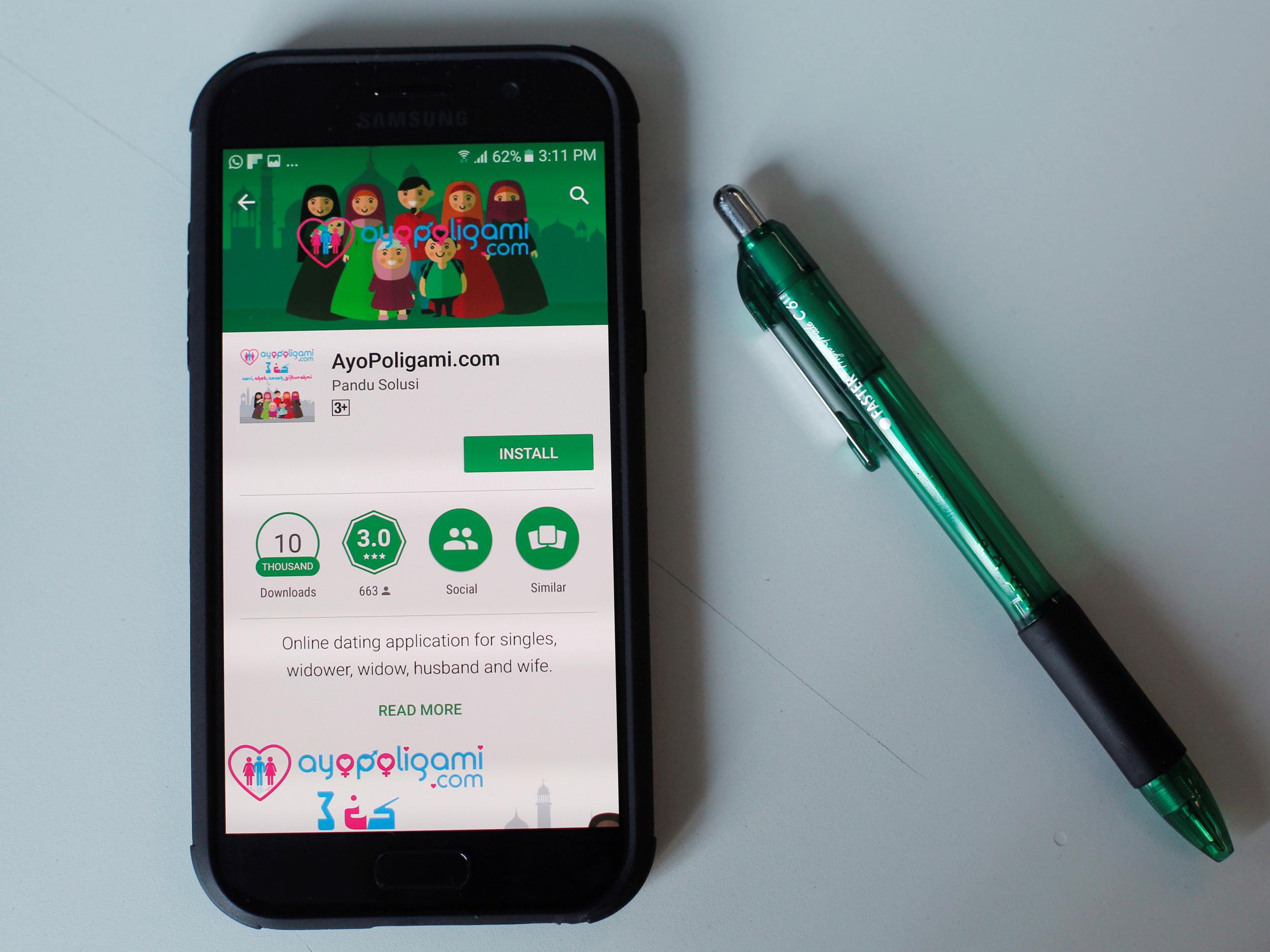AyoPoligami: Dating app encouraging polygamy causes a stir in Indonesia
Developer Lindu Pranayama's controversial creation enables married men to seek out additional wives using their smartphones

Your support helps us to tell the story
From reproductive rights to climate change to Big Tech, The Independent is on the ground when the story is developing. Whether it's investigating the financials of Elon Musk's pro-Trump PAC or producing our latest documentary, 'The A Word', which shines a light on the American women fighting for reproductive rights, we know how important it is to parse out the facts from the messaging.
At such a critical moment in US history, we need reporters on the ground. Your donation allows us to keep sending journalists to speak to both sides of the story.
The Independent is trusted by Americans across the entire political spectrum. And unlike many other quality news outlets, we choose not to lock Americans out of our reporting and analysis with paywalls. We believe quality journalism should be available to everyone, paid for by those who can afford it.
Your support makes all the difference.Scrolling through dating websites a year ago, Indonesian app developer Lindu Pranayama realised there were a lot of married men looking for another wife - but few online services to meet their needs.
“When they go to regular dating sites, they don't see options for polygamy. They don't see options for finding second, third or fourth wives,” he said.
Enter “AyoPoligami” - a new smartphone app developed by Pranayama, which aims to “bring together male users with women who are willing to make 'big families'.”
Loosely translated as “Let's do polygamy”, the Tinder-style dating app has already stirred up controversy since its April launch in Indonesia, where over 80 percent of the 250 million population are Muslim and polygamy is legal.
Muslim men can take up to four wives in Indonesia, the world's most populous Muslim country, if permission is granted by a court and the first wife gives her consent.
Court officials could not provide figures of how many people in Indonesia are polygamous, but activists say cases of men giving false information to gain permission and manipulation of women are common.
The app has been downloaded over 10,000 times before it stopped registering new members following concerns of fake accounts were being set up, and men using the site without the knowledge of their first wives.
A new version is set to be launched on 5 October, and will impose stricter rules on users including requiring them to provide an identification card, marital status and a letter of permission from their first wives.
Iyus Yusuf Fasyiya, an Indonesian factory worker who has two wives, said he used the app to share tips with other users on how to maintain a polygamous marriage.
“Many members are looking for wives - they ask about how to start, how to maintain polygamous marriages, and also government regulations,” he said from his home village in Bogor, about 90-minute drive from the capital Jakarta.
The 37-year-old dodged questions about whether he was using the app to look for another wife but said he continues to learn about polygamy, after he took on his second wife six years following his first marriage in 2000.
“It just happened, this is what God planned for me,” said Fasyiya, who takes turns to see his two wives and five children who live in nearby villages.
The majority of the app users were men, but there were also about 4,000 women who have registered, the app developer said.
Lawyer Rachmat Dwi Putranto, who deals with marriage matters, said polygamy is “not that easily achieved” as Indonesian courts will only give permission if the first wife is disabled, ill or cannot bear children.
But Indriyati Suparno, a commissioner from the government-backed National Commission on Violence Against Women, said the app was trying to “normalise polygamy”. “The reality is women tend to be the victims of domestic violence in a polygamous marriage - polygamy is a form of violence against women,” she said.
Indonesia's Women's Empowerment and Child Protection Ministry said it was up to individuals if they wanted to use the app because polygamy is legal as long as it can be done in a fair manner.
“For us what is important is whether the women and children are protected in polygamous marriages,” the ministry's spokesman Hasan, who uses one name, told the Thomson Reuters Foundation.
User Fasyiya said he will continue to refer to the app to learn how to juggle his two families.
“Me and my wives, we're committed to showing people that polygamy isn't as scary as they think,” he said.
“We're trying to make it work.”
Thomson Reuters Foundation
Join our commenting forum
Join thought-provoking conversations, follow other Independent readers and see their replies
Comments